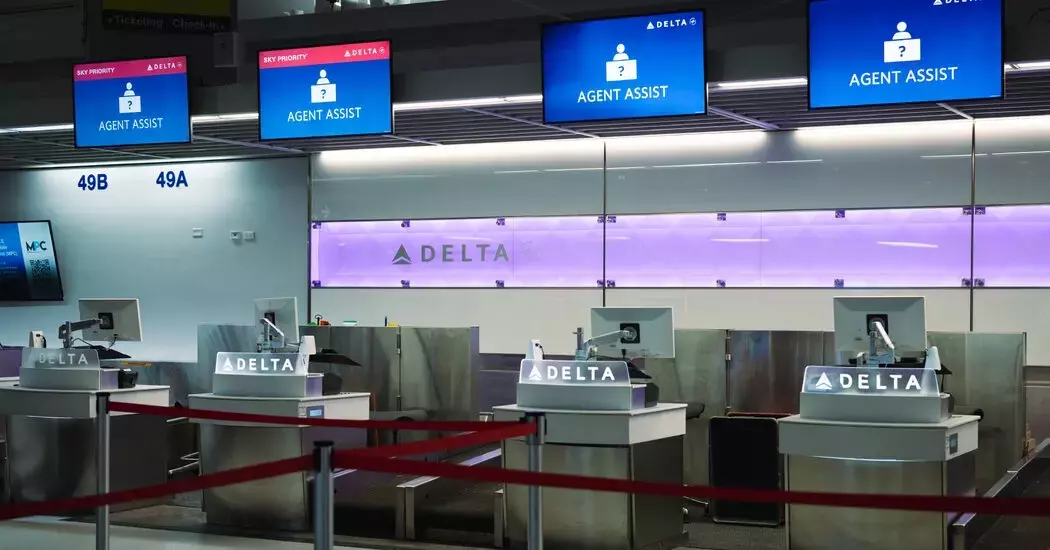Delta Air Lines recently emerged as one of the prominent American corporations voicing concerns over the economic implications of escalating trade disputes. In a candid interview, CEO Ed Bastian highlighted the potential for a recession if current uncertainties persist without resolution. The airline industry’s vulnerability to economic fluctuations underscores the broader implications of these geopolitical tensions.
Global Economy Faces Turbulence Amid Trade Disruptions
The global economy is increasingly showing signs of strain due to prolonged trade conflicts, and Delta Air Lines finds itself at the forefront of this unfolding narrative. As companies reassess their spending strategies amidst uncertainty, the aviation sector faces significant challenges. Airlines, being acutely responsive to economic shifts, are witnessing travelers reconsidering plans amid financial apprehension.Bastian expressed astonishment at the rapid deterioration in economic conditions attributable to mounting trade pressures. This unprecedented uncertainty has created what he termed a "self-inflicted" scenario, disrupting established market dynamics. While Treasury Secretary Scott Bessent remains optimistic about the resilience of the U.S. economy, Delta’s outlook reflects growing skepticism among corporate leaders regarding future stability.Economic Instability Affects Corporate Projections
Delta's recent earnings report paints a sobering picture of diminished expectations for business growth in the latter half of the year. The absence of clear economic indicators complicates forecasting profitability for investors. Despite summer bookings aligning with previous years, international travel patterns indicate a downturn, particularly concerning foreign visitors entering the United States. However, Bastian noted that domestic consumers continue seeking escapes from prevailing anxieties, driving interest in leisure travel within North America.This dichotomy between domestic and international demand highlights complex consumer behaviors during times of economic stress. For Delta, maintaining operational efficiency while navigating shifting customer preferences becomes paramount. Moreover, addressing investor concerns necessitates transparent communication regarding anticipated financial performance amidst volatile market conditions.Market Reaction Reflects Investor Sentiment
Shareholder reactions to Delta's revised projections underscore waning confidence in the airline's short-term prospects. With stock prices plummeting approximately 40% year-to-date, stakeholders express heightened unease about ongoing trade frictions impacting corporate bottom lines. Such market responses amplify calls for diplomatic resolutions to restore predictability and foster sustainable economic recovery.Investors scrutinize every statement from corporate executives like Bastian, searching for insights into how businesses adapt under duress. His acknowledgment of possible recessive trends resonates deeply within investment circles, reinforcing perceptions of fragility across industries reliant on stable global trade networks. Consequently, restoring trust requires not only policy adjustments but also strategic repositioning by affected enterprises.Consumer Behavior Shapes Travel Industry Dynamics
Consumer sentiment significantly influences travel decisions, especially during periods marked by economic unpredictability. Domestic tourists opting for vacations closer to home exemplify adaptive responses to perceived risks associated with overseas journeys. Airlines must therefore innovate offerings tailored to evolving traveler priorities, ensuring value propositions remain compelling regardless of external factors influencing decision-making processes.Furthermore, understanding regional disparities in booking trends provides valuable intelligence for refining marketing strategies. By capitalizing on localized opportunities where demand persists, airlines can mitigate some adverse effects caused by macroeconomic challenges. Ultimately, fostering loyalty through enhanced service delivery contributes towards stabilizing revenues even as larger systemic issues linger unresolved.You May Like

